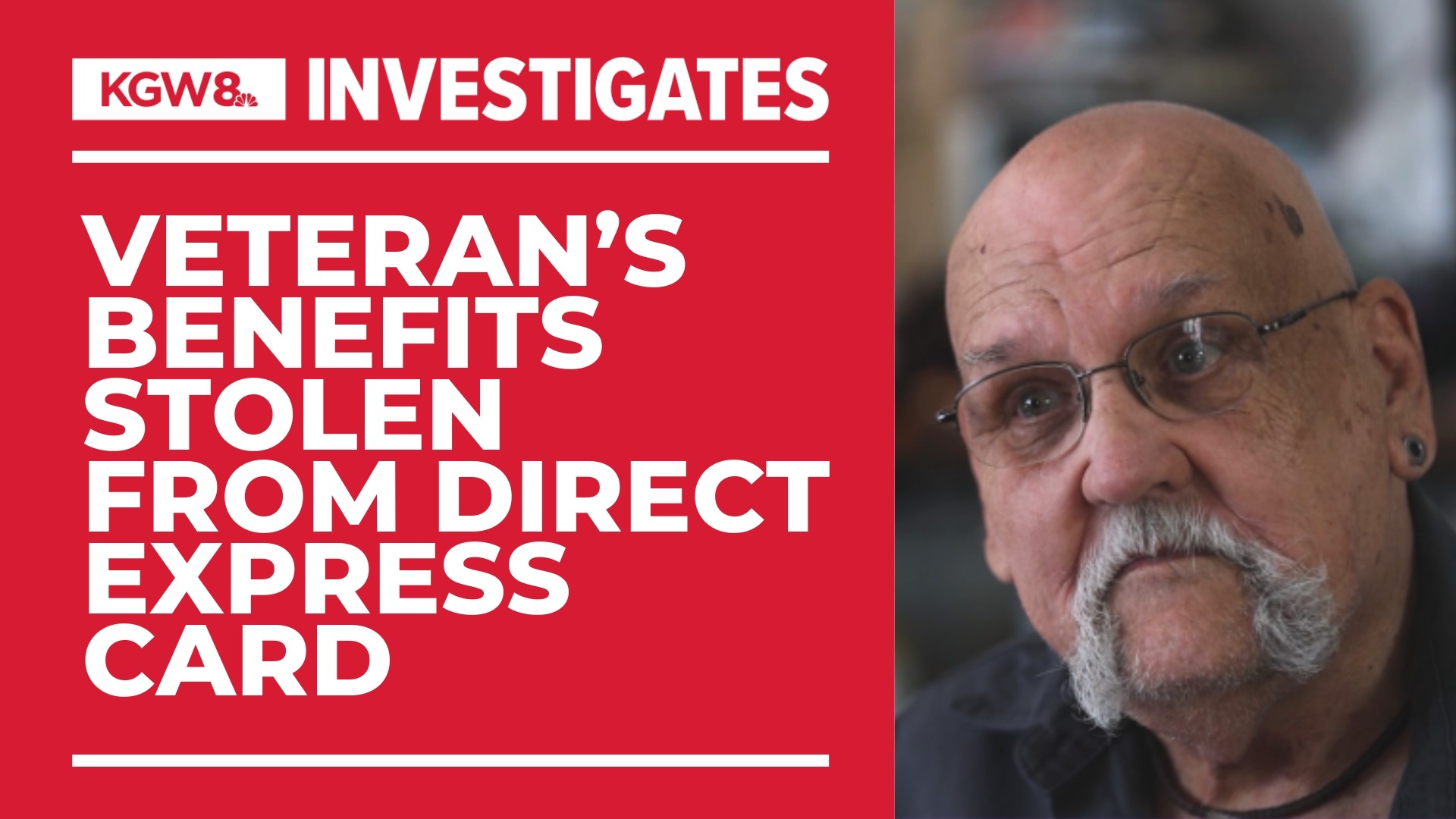PORTLAND, Oregon — Social Security and veteran disability benefits are a lifeline for 72-year-old Milton Zimmer. The federal funds are his primary source of income, helping the Salem man pay for food, medicine and housing. The U.S. Navy veteran, who served in the Vietnam War, admits without those benefits, he’d struggle to keep a roof over his head.
“I’d probably be living under the bridge to be honest with you,” explained Zimmer.
Each month the federal benefits are automatically deposited into Zimmer’s Direct Express card account.
In July, Zimmer swiped his Direct Express debit card at a Safeway store when it was unexpectedly rejected.
“I should have had $140 on my card,” explained Zimmer. “It showed zero!”
Zimmer asked Direct Express to send him account statements for the past six months. After going through each transaction line-by-line, Zimmer noticed various unauthorized online purchases for random items including video games, diet supplements and cosmetics.
“None of them are my purchases,” Zimmer said. “I know what I bought. I know what I use my card on, and I don’t use it on frivolous stuff like diet pills or face cream or video games.”
Zimmer doesn’t know how or when his Direct Express account was compromised.
“I have no idea. I keep my card with me. I don’t let anybody use it. I don’t give it to anybody,” explained Zimmer.
He filed a complaint with fraud services at Direct Express detailing the roughly $6,000 in bogus charges. One day later, the company responded with a letter. After a thorough investigation, the company explained fraud services found there was nothing fishy and no error occurred. Zimmer would not be reimbursed for his losses.
“$6,000. That’s a lot of money for me!” Zimmer explained.
Similar stories have been reported by various news outlets around the country. Seniors, veterans and disabled people had their benefits stolen, then struggled to get their money back.
More than 4.5 million people get their federal payments through Direct Express prepaid debit cards. The federal government contracts with Comerica Bank to administer the program.
In 2019, U.S. Sen. Elizabeth Warren of Massachusetts shared findings from an investigation which uncovered 480 cases of fraud involving the Direct Express program nationwide in a single year, with losses totaling $460,000. Comerica claimed all cardholders were reimbursed, according to a letter Warren sent to the U.S. Treasury Department.
The program is also the target of a class action lawsuit which argues fraud victims routinely had their claims denied after “sham investigations” and Direct Express didn’t do enough to protect card holders with security protection or fraud alerts.
“I’m pretty disgusted with Direct Express because they let somebody make six months’ worth of charges and didn’t even contact the person to find out if they’re true or not,” Zimmer argued.
Comerica Bank, which contracts with the government to administer the Direct Express program, declined to comment on Zimmer’s situation or the class action lawsuit.
“We take pride in our work supporting the Direct Express program and providing the service to the millions of Americans who rely on it to receive their federal benefits,” wrote Comerica spokesperson Nicole Idzi Hogan in an email to KGW.
To file a complaint or escalate help regarding Direct Express Cards, the Treasury Office of Inspector General encourages users to send an email to direct.express@fiscal.treasury.gov.
After KGW started asking questions, Zimmer said Comerica called him and explained the fraud department would take another look at the unauthorized charges. The bank agreed to refund him $5,000, Zimmer explained.
The Salem veteran fears there could be other seniors and veterans who are unaware that fraudsters are draining their accounts.
He encourages others to request a printed monthly statement or review account activity online.
“If this has been going on for me for the last six months, no telling how much longer it has been for others,” explained Zimmer.

